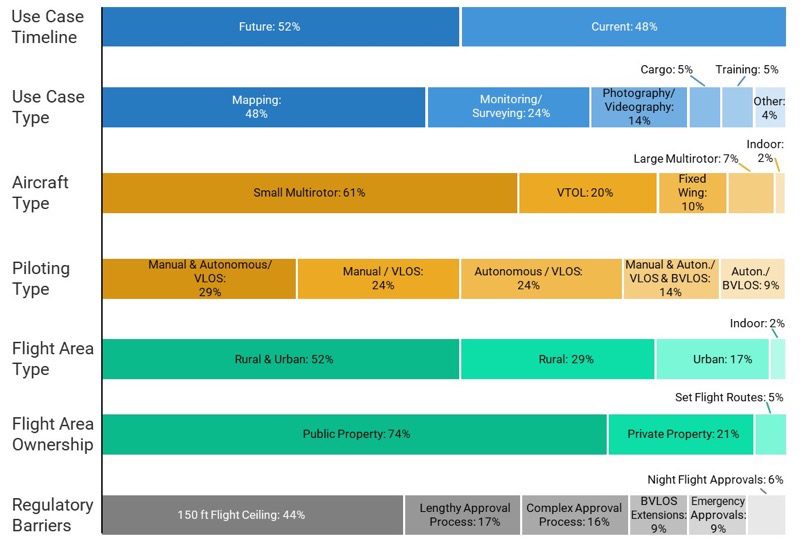
Airspace Harmony: Empowering Drone Technology in Namibia Through Inclusivity
December 18th, 2023

Drones are not merely gadgets but potent tools for development and social good. The Flying Labs Network, in collaboration with WeRobotics, stands at the forefront, showcasing their transformative potential worldwide. Projects spanning agriculture, climate change, development, education, health, and humanitarian sectors across 40+ countries have demonstrated tangible impact. Senator Cindy Hyde-Smith rightly emphasizes, "the use of drones to improve public safety, agriculture, and other uses will only increase," a sentiment echoed by the Namibia drone ecosystem.
However, the burgeoning drone industry in Namibia faces a crucial challenge: the integration of a framework for safe and efficient operations. This challenge is familiar to many Civil Aviation Authorities (CAAs) grappling with developing or updating regulations to ensure safety while fostering innovation. Recognizing this need, Namibia Flying Labs, in collaboration with WeRobotics and Deloitte Consulting and under the authorization of the Namibia Civil Aviation Authority (NCAA), embarked on a groundbreaking learning project. The objective? To analyze the industry's current state, identify best practices, and propose recommendations to the NCAA.
Valuable insights were shared by engaging with 35 representatives from the Namibia RPAS ecosystem in workshops. A staggering 42 use cases of drone operations in Namibia emerged, with a significant focus on mapping activities. Notably, 74 percent of drone flights occur in public areas, emphasizing the urgency for a robust framework that benefits and serves all stakeholders. The outcomes of this project lay the foundation for a brighter future.

With the incorporation of direct stakeholder feedback, the NCAA can ensure safe and efficient drone operations, foster community and business development, attract new RPAS enterprises, and streamline bureaucratic procedures. Key takeaways from our study highlight the importance of staying informed on drone regulations and promoting collaboration with local organizations with similar interests. These insights demonstrate the unwavering commitment of stakeholders to support trusted local entities.
As the drone operation regulatory landscape can be complex, our study revealed multiple areas that may require melioration, but of urgency being the prioritization of the most significant gaps or focal areas. One of these pressing issues in Namibia is the restrictive RPAS flight ceiling of 150 ft AGL, both repressing industry potential and restricting a myriad of use cases. Additionally, the definition of VLOS and BVLOS being inhibitory in nature is not flexible enough to accommodate various geographical conditions, weather and visibility conditions, nor the type of mission of each RPAS operation. The lack of an adaptive and dynamic framework evidently hinders the full potential of drone technology. Furthermore, there is a general deficiency of awareness from the public regarding the available information and resources from the local CAAs, which ultimately heightens the likelihood of unsafe drone operations. Lastly, the RPAS operations approval process is complex and time-consuming, discouraging potential drone operators from legally entering the market.
Every project teaches us something new, and this one was a real eye-opener. We faced challenges like conflicts of interest and communicating our message effectively, but that's where the real learning happens. So, we decided to capture all these lessons in a neat framework—our secret sauce for success. This evolution in the project methodology sparked the creation of something pretty amazing!
This initiative marked the successful development of a comprehensive framework, essentially a guidebook, outlining effective strategies to support RPAS regulations and policies. We approached this with a friendly, community-centered methodology, emphasizing a bottom-up and localized focus. Beyond the framework, we have also created a detailed handbook and toolkit tailored for our colleagues within the broader Flying Labs Network, totaling 40+ labs. We take pride in sharing the experiences and knowledge gained during our year-long journey in this learning project. We believe this framework can be a valuable resource for our Network colleagues in Africa, Latin America, the Caribbean, and Asia/Pacific, offering insights and methodologies for successful replication in their respective countries. The handbook and toolkit provide comprehensive guidance, streamlining the adoption and successful implementation of the framework for our colleagues.
As we say goodbye to this transformative year, joy and nostalgia fill our hearts. We are not simply closing a chapter but are welcoming the promising outcomes this project will bring.
While we eagerly await the tangible impact on our regulations and ecosystem, we envision a future where every drone user effortlessly navigates a landscape of easy, safe, and legal operations—just like the infectious smile of Beverly Kaura, a devoted Forester from the National Remote Sensing Centre at the Ministry of Environment, Forestry, and Tourism. Beverly, along with 34 other dedicated stakeholders, invested time and effort, contributing to the success of this project.
Our heartfelt appreciation extends to WeRobotics, the D2I team of Deloitte Consulting, the NCAA, and the Namibian drone user ecosystem. Your unwavering commitment has been the driving force shaping the future of drone technology in Namibia. With the Flying Labs Network at the forefront, the possibilities for this disruptive industry in Namibia and worldwide are boundless.
As we express our gratitude to every contributor, we recognize that this is not an end but a hopeful beginning. Here's to a future where the sky is not the limit but a vast playground for safe, legal, and joyful drone operations. Thank you all for being a part of this remarkable journey!
Recent Articles

